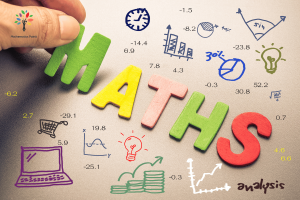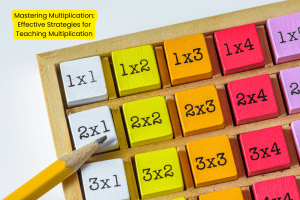Maths emerges as a quiet power that moulds our existence well beyond the classroom in a world where the rhythm of daily living is set by numbers. Maths is the unsung hero that enables us to decipher the complexity of existence and is far from being restricted to textbooks and calculations. Math is the compass directing us through the complex routes of the contemporary day, from the menial task of grocery shopping to the high-stakes world of financial decisions.
In the upcoming investigation, we will set out on a quest to discover the tremendous relevance of mathematics in our everyday lives, highlighting 10 different reasons why its influence extends well beyond theoretical notions and into the domain of practical, real-world significance.
Budgeting and Financial Management
Effective personal financial management is built on the foundation of fundamental arithmetic abilities. Math gives people the capacity to make detailed budgets that are in line with their financial objectives, going beyond the basic arithmetic of calculating spending. For instance, a fundamental understanding of percentages and ratios is necessary to comprehend the 50/30/20 rule, which states that 50% of income should be allocated to essentials, 30% to discretionary expenditure, and 20% to savings. Math also helps people understand complicated financial items like loans and mortgages, helping them to critically evaluate terms, interest rates, and repayment plans.
Math proves to be a powerful friend in the world of investment. Understanding ideas like compound interest, return on investment (ROI), and the time worth of money is essential when assessing the possible advantages and dangers of various investment opportunities. These mathematical concepts enable people to make wise choices concerning long-term wealth accumulation. Math also helps us to understand the nuances of debt management techniques. Mathematical calculations give the framework for a future free of debt, regardless of whether one is considering the snowball approach or the avalanche method for debt repayment.
Career Advancement
A wide range of professional fields are affected by mathematics in terms of career growth. For instance, engineers use sophisticated mathematical ideas to plan and assess complex structures to guarantee their usefulness and safety. Engineers use maths to translate inventive ideas into practical realities, from estimating the structural soundness of a bridge to forecasting an aircraft’s aerodynamics.
Mathematics is the analysis’s language in scientific endeavours. In order to make sense of experimental data, validate hypotheses, and identify patterns that support discoveries, researchers rely on statistical approaches. For negotiating the complexity of experimental design, data analysis, and reaching reliable results, mathematics literacy is without a doubt essential.
Data analysts and economists are at the forefront of decision-making based on data. They identify patterns, forecast market behaviour, and provide insight into economic policy by using statistical analysis, regression models, and econometric approaches. Professionals in these disciplines are better able to make strategic decisions that have an influence on economies and businesses when they have a solid grasp of maths.
The range of professional options is ultimately widened by a solid maths background. It goes beyond particular job titles and supports the capacity to innovate across a wide range of disciplines, address problems systematically, and think critically. Mathematical aptitude is a global skill that fosters professional development and opens doors to uncharted knowledge spheres, whether it is solving difficult equations or deciphering intricate difficulties.
Problem Solving
Mathematics is a toolset for developing logical and analytical thinking; it is not only about numbers. Mathematical exercises help us develop our problem-solving abilities, which have a wide range of applications in our daily lives. The methodical approach instilled in mathematical problem-solving transforms into a trustworthy compass when faced with obstacles, whether they are technology hiccups or interpersonal disagreements.
People may approach challenges systematically, assess available solutions, and make well-informed judgements by breaking difficult problems down into smaller, more manageable steps. This method encourages self-assurance and resilience, allowing us to manoeuvre the choppy waters of real-life situations with grace and adaptation.
Cooking and Baking
The precise mathematical calculations that go into baking and cooking go beyond the realm of cuisine and have a direct influence on the tastes and textures of our favourite foods. For instance, modifying recipes entails using ratios and quantities to guarantee the ideal balance of elements. Mathematical calculations make sure that the balance of flavours is maintained when a dish is scaled up or down for a larger gathering or a more private supper.
Mathematical accuracy is also necessary for knowing cooking times since it frequently makes the difference between a meal that is precisely roasted and one that is overdone. As a result, the kitchen transforms into a laboratory where maths and creativity collaborate to produce delicious culinary experiences.
Travel Planning
Math is a trustworthy travel companion, whether you’re taking a cross-country road trip or an international journey. By calculating the distances between locations, a route’s efficiency can be improved. A smooth journey is ensured by factoring in things like speed restrictions and breaks when estimating travel hours. When planning a budget for vacation expenses, people use arithmetic to determine how much lodging, transportation, and activities will cost.
Mathematical exchange rates are required to convert currencies, a necessary ability for international travel, and make wise purchase selections. Another area where maths is useful is in understanding time zone changes, which helps avoid missing flights and promotes smooth travel between various locations. In conclusion, math equips tourists to painstakingly plan their trips, to appreciate each moment, and to take on the globe with assurance.
Home Improvement
Math serves as the guiding force that assures a good conclusion in home renovation projects, which frequently require a combination of creativity and accuracy. The construction of any DIY project, from a bookshelf to a backyard deck, requires exact measurements and calculations. It’s crucial to comprehend ideas like area, volume, and angles while cutting materials and putting together components. Accurate measurements guarantee a flawless fit and guard against expensive mistakes that might result in resource waste and time-consuming repairs.
Mathematical prowess makes sure that every joint, hinge, and fixture line up precisely while building furniture, producing a completed item that oozes workmanship. Ensuring there is neither a deficit nor an excess of paint or wallpaper for a room gives a professional finish. When it comes to home repair, math turns imaginative concepts into observable, aesthetically beautiful realities.
Health Monitoring
Maths also plays a part in our health monitoring, giving us the ability to make judgements regarding our physical status with confidence. Math makes guarantee that health interventions are exact and successful, from calculating goal heart rates during exercise to comprehending optimal medicine doses depending on body weight. Mathematical literacy is necessary for interpreting medical test results, such as cholesterol and blood sugar measurements, in order to recognise trends and take preventative action.
Calculations of body mass index (BMI) offer information on healthy weight ranges, assisting people in making informed decisions regarding their food and exercise routines. Mathematical calculations of nutrient content and portion sizes are involved in reading and comprehending nutrition labels on food goods, directing us towards balanced dietary options that support a healthy lifestyle.
Logical Thinking
Mathematical study and practice provide a fertile field for developing logical reasoning and thinking skills that go beyond mathematical calculations. The act of reducing complicated issues into manageable steps develops the mind’s capacity for systematic, analytical problem-solving. These logical thinking abilities have many different uses and help us approach different circumstances coherently and clearly.
The rigorous approach taught by math equips us to analyse issues methodically and come up with answers, whether we’re managing challenging professional tasks, resolving interpersonal disagreements, or weighing alternative life course options. As critical thinking and problem-solving skills are strengthened, logical thinking becomes a fundamental tool for success in a variety of fields.
Technology and Innovation
Modern innovation is built on the seamless fusion of mathematics and technology. The operation of today’s technological wonders, such as cell phones and self-driving cars, is primarily dependent on complex mathematical algorithms. Search engines, like Google, use sophisticated mathematical methods to sort through enormous amounts of data and present pertinent search results. In order to provide secure and private communications in the digital sphere, encryption techniques are used to protect our online transactions, sensitive data, and communication channels.
Anyone who wants to understand and take advantage of technological advancements has to be well-versed in mathematics. When coding algorithms or designing user interfaces, engineers, designers, and innovators communicate with machines using mathematics. Strong mathematical backgrounds may help people not only navigate the rapidly evolving technology world, but also actively contribute to it. Math serves as a conduit via which innovative concepts are translated into tangible realities, from developing cutting-edge applications to building sustainable energy solutions.
Data Interpretation
In an era characterised by an enormous availability of data, the ability to navigate through wide information landscapes and provide pertinent insights has emerged as a vital skill. In this age of data analysis complexity, mathematics acts as our steadfast guide, guiding us through challenging analytical adventures. We use statistics, a fundamental branch of mathematics, as a toolbox in this situation to comb through datasets looking for correlations, patterns, and trends.
In today’s data-driven environment, the ability to analyse graphical representations like charts and graphs with ease is crucial. The ability to comprehend the complexity concealed in these visual cues, decoding complicated information, and translating it into valuable knowledge is only available to those who are proficient in mathematical language. Businesses can find guidance from the art of data analysis, which reveals consumer behaviour insights, streamlines operational procedures, and adjusts strategy trajectories to fit changing market needs. Individuals can gain personally from the application of maths in data interpretation by being able to recognise trends in areas like tracking financial improvement or charting the progression of fitness objectives.
Today, mathematics has a purpose that extends beyond academic contexts; it has become a life skill that helps us to make informed decisions, handle challenging circumstances, and engage meaningfully with the outside world. Maths has a significant influence in a variety of areas, from promoting logical thinking to expanding technological limits, from financial management to maintaining good health. Accepting the core of mathematics acts as a pillar for achieving comprehensive success in both personal and professional efforts as we navigate the complicated tapestry of our contemporary surroundings. It is vital to understand the value of mathematics and how it affects our daily lives as a result.






